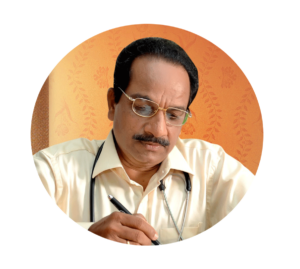I’d want to get your take on something. How many hours do you suppose there are in a day? “That’s something I never considered.” This is all I’m getting at. Even though you’re thinking all the time, you don’t realise how much time you spend pondering your thoughts. Addiction? It’s what that sounds like. I should know, as I’m also a recovering thinker. “I’m overeating,” I may remark when I eat too much reducing my caloric intake is a priority for me.” The phrase “I’m becoming burnt out” comes to me when I’m working too much. Stop working, please. “I may tell myself, “I need to quit. Water is what I need right now.”
But I can’t simply declare “I’m overthinking” when I’m thinking too much. I need a new strategy to clear my mind. However, we have a problem in that we don’t think of overthinking as an issue. The assumption that only negative thoughts are incorrect is common when someone states that thinking too much is bad. And, as a result, it follows that positive thoughts are a good thing. That’s the blunder I’ve made in my thinking in the past. It is a fallacy to presume that happy thoughts are beneficial, and I will explain why in a moment
Before we go into the differences between positive and negative ideas, let’s first discuss the distinction.
Positivity vs Pessimism:
Negative thoughts, I believe, are closely linked to:
- Worrying
- Complaining
- Anger
- You’re down on yourself.
- laying the blame at the feet of others
We may also agree that the following ideas are positive:
- attempting to find solutions
- Studying
- Understanding information
- Planning
- Visualization
- Defining objectives
Most self-help books advise people to stop dwelling on their problems and focus instead on the bright side of life. It’s a solid piece of advice if you think about it briefly. Negative ideas, on the other hand, just make our life more difficult. Isn’t that what positive thinking is supposed to do? That would be ideal. In reality, overusing your brain may cause it to get clogged like a drain. As a consequence, one’s judgement becomes clouded. This results in poor judgement. Your thoughts do not make you who you are. You may, of course, become anything you want yourself to be. As Marcus Aurelius said in Meditations, “No one articulated it better. Our lives are what we make them.”
The calibre of our ideas has a direct impact on the circumstances of our lives. That’s what I believe in. Nevertheless, the majority of us believe that we are our ideas. It’s as though these thoughts won’t leave my head. Then, that’s just my opinion.
That’s not you, either. You have the power to choose which ideas you want to keep in your head and which ones you don’t. In the Power of Now, Eckhart Tolle sums it up thusly:”Realizing that you are not the possessing entity—the thinker—is the beginning of liberation. “Only by ceasing to follow through on all of your ideas will you be able to shed your sense of self-identification. As an alternative, choose to live in the here and now, when there is no time for contemplation but just for the experience. Is there a way that you live your life in the here and now? Thought is a tool. When you’re awake, don’t utilise that tool for the 16 or 17 hours that you’re awake.
It’s a good question, however. Stopping myself from overthinking has been a simple four-step approach for me.
- Do your best to pay attention to what’s going on around you.
- Always keep in mind that overthinking is counterproductive.
- As soon as you become more conscious, you should begin paying attention to your thoughts.
- Take a step back every time you begin to think and see how your thoughts progress. Doing this automatically puts an end to it.
You should only use your mind when it is absolutely necessary. Sit down and think about your everyday priorities for a while, for example. That might take up to five minutes. It’s okay to contemplate and act on your ideas during this period. When you’re writing a journal, you’re also thinking about what you’re writing about. That’s all right, too. We’re attempting to put an end to the incessant ruminations. Being a monk isn’t something we want to do. Life is short, so make the most of it!
Take a deep breath and let go of any ideas of the past or future. No matter how far you wish to go in the future or how much you’ve endured in the past, remember to be grateful for the moment you’re in RIGHT THIS MOMENT. You don’t need me to tell you how wonderful it is to be alive. You know that. I’m not going to advise you to “enjoy washing the dishes” or anything like that. Not my cup of tea. In the end, I’m unable to mislead myself. Rather of dwelling on the past or the future, I focus on the now. This time, I let go of every idea that had been running through my head. I don’t think about anything when I’m doing something I don’t like (washing the dishes). I don’t give a second thought to it. That is not the case if the task at hand is something that is really enjoyable to me (no matter how tiny or large). In the present, whether it’s when I’m watching a movie, playing a game, or hanging out with my family, friends, or partner.
The things I need to do in the future are not on my mind. Not much to say. Immediately. I’m here right now. Like the time you’ve taken to read this paragraph, for example. As soon as it’s gone, there is no going back.
You’ll never leave the present if you understand this on a deeper level. Are we all on the same page? OH no, don’t answer that question—ANSWER IT, PLEASE.


